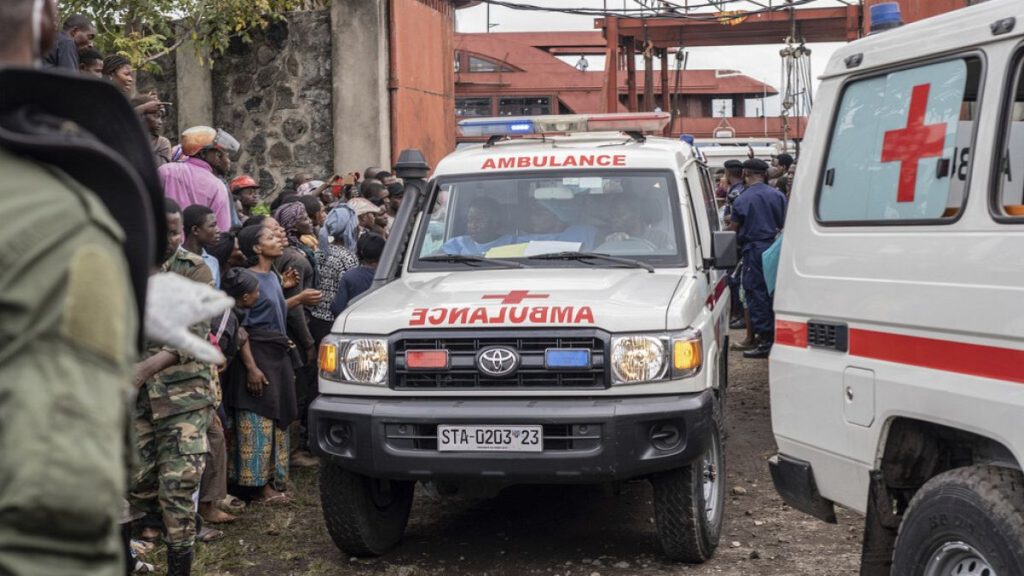The Democratic Republic of Congo (DRC) grapples with a persistent and tragic problem: the frequent capsizing of overloaded boats on its rivers, resulting in significant loss of life. A recent incident on the Fimi River, near Inongo, exemplifies this recurring tragedy. An overcrowded vessel, carrying over 100 passengers and a substantial amount of cargo, capsized shortly after departure, claiming at least 25 lives, including children, with dozens more still missing. This incident underscores the perilous conditions prevailing on the DRC’s waterways and the urgent need for improved safety measures. Overloading, a common practice driven by economic necessity and limited transportation alternatives, is a primary factor contributing to these disasters.
The Fimi River tragedy is not an isolated event. This year alone, Maï-Ndombe province, where the incident occurred, has witnessed four similar boat capsizes. The province, like many other regions in the DRC, relies heavily on river transport due to the poor state of its road infrastructure, a consequence of years of conflict and neglect. This dependence on rivers, coupled with inadequate safety regulations and enforcement, creates a dangerous environment for passengers. Although officials have repeatedly issued warnings about the dangers of overloading vessels, these admonitions often go unheeded due to the lack of affordable and accessible alternatives. Many residents in remote areas simply cannot afford the cost of public transport on the few available roads, forcing them to risk their lives on overcrowded boats.
The human cost of this ongoing crisis is staggering. The recent Fimi River incident follows a string of similar tragedies. In October, an overloaded boat sank in eastern DRC, resulting in the deaths of at least 78 people. Just a few months earlier, in June, a similar incident near Kinshasa claimed the lives of 80 individuals. These recurring tragedies highlight a systemic failure to address the root causes of the problem and implement effective solutions. The combination of inadequate infrastructure, lax safety regulations, and the pervasive insecurity plaguing the nation creates a perfect storm for such disasters.
The deteriorating security situation in the DRC further exacerbates the problem by forcing more people to rely on river transport. Deadly clashes between security forces and rebel groups frequently block roads, making them unsafe and unreliable. This increased reliance on rivers, combined with the existing challenges of overloading and inadequate safety measures, amplifies the risk of boat capsizes. As road travel becomes increasingly perilous, river transport, despite its inherent dangers, becomes the only viable option for many Congolese citizens. This precarious situation underscores the urgent need for a comprehensive approach to address both the security concerns and the safety issues on the waterways.
Local residents and officials alike are calling for urgent government action to improve safety on the DRC’s rivers. They recognize that the current situation is unsustainable and that concrete measures must be taken to prevent further loss of life. These calls echo a growing sense of frustration and desperation among communities affected by these recurring tragedies. While improved enforcement of existing regulations is crucial, addressing the underlying issues requires a multi-pronged approach. Investing in road infrastructure, improving access to affordable public transport, and enhancing safety standards for river vessels are essential steps towards mitigating the risks.
Ultimately, addressing the root causes of this recurring tragedy requires a commitment from the government to invest in infrastructure development, enhance safety regulations, and address the underlying security concerns that plague the nation. Without these essential interventions, the cycle of overloaded boats and tragic capsizes will likely continue, claiming more lives and perpetuating the suffering of the Congolese people. The international community also has a role to play in supporting the DRC’s efforts to improve safety and security, ultimately contributing to a more stable and prosperous future for the nation.














